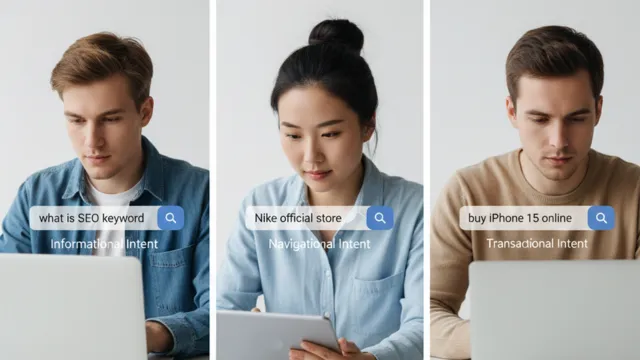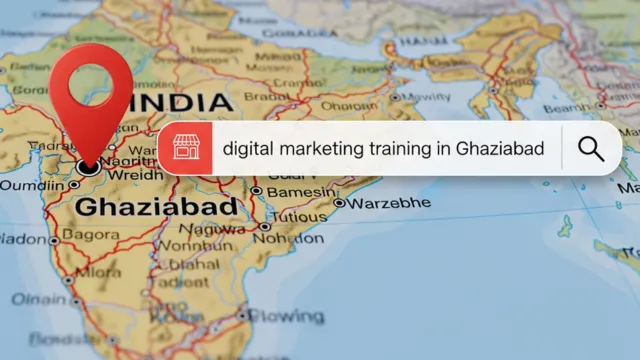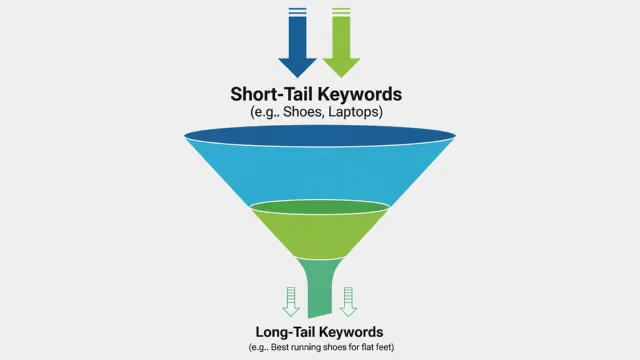When people search for anything online, they type words or short phrases into Google search bar. These are called keywords. In this guide, we will explain what is a keyword in SEO, why it matters, and how to use it effectively. In SEO, a keyword is the bridge between a user’s query and the right webpage. If your site uses the right keywords, search engines can display it to the right audience at the right moment. Think of it like walking into a library and asking for “best books on fitness.” The librarian takes you straight to the right shelf — that’s how keywords guide SEO.
If you’re new to SEO, you can first check our detailed guide on What is Search Engine Optimization and How It Works
Keyword Meaning in SEO
The meaning of a keyword is not just about the word itself. It’s about intent. For example:
- If someone types “buy running shoes online”, they want to shop.
- If someone types “benefits of running shoes”, they want information.

Both searches use the term “running shoes,” but the intention is very different. So, when you select keywords for SEO, you must think beyond the word. It is super important to understand the need of what the searcher is looking for.
Why Keywords Are Important in SEO
Inclusion of keywords in the content is important because they help search engines understand your website content. Without them, even the best website will stay hidden.
- Visibility: Keywords make your website show up in search results.
- Traffic: Appropriate keywords bring the right kind of visitors.
- Conversions: If the keyword matches the intent, visitors are more likely to take action or may become your customers eventually (buy, sign up, or call).
Take for example a study done by Ahrefs—it was found that 96% of pages get no traffic from Google (source: https://ahrefs.com/blog/search-traffic-study/). Do you know the biggest reason? It is poor keyword usage.
Types of Keywords in SEO
One of the most common questions people ask is: how many types of keywords are there in SEO? The answer to this, however depends on how you classify them. But here are the main types every beginner should know about: “Before you learn the types, it’s important to clearly understand what is a keyword in SEO.”
| Keyword Type | Meaning | Example | Best Use Case |
| Short-Tail Keywords | 1–2 words, very broad, high volume but high competition | Shoes, Laptops | Big brands with strong authority |
| Long-Tail Keywords | Longer, specific, less competition, highly targeted | Best running shoes for flat feet | Small businesses, niche targeting |
| Informational Keywords | Used when people want knowledge or answers | What is SEO keyword | Blog posts, guides, how-to content |
| Navigational Keywords | People search for a specific brand or website | Nike official store | Brand awareness, direct traffic |
| Transactional Keywords | Show buying intent | Buy iPhone 15 online | Product pages, e-commerce sites |
| Local Keywords | Add location with product/service | Digital marketing training in Ghaziabad | Local businesses, service providers |
| LSI Keywords | Related terms/synonyms that give context | Apple (fruit, iPhone) | Support content relevance, context building |
How to Use Keywords in SEO
It’s not enough to just know keywords—you need to place them smartly. Include them in your page titles. Like for example: use “Digital Marketing Services in Ghaziabad” instead of just “Our Services”) and in headings (H1, H2). This helps readers as well as search engines understand what your content is about.

Place them naturally in the content. There is no need to fill the text with keywords, and always write as if speaking to a person. Integrate them in meta descriptions since Google highlights those in results, and add them in image alt text (for example, “red running shoes for men”).
Finally, use internal links. If you write about “types of keywords,” link to another page like “SEO strategy.”
“Let’s see a case: a bakery in Delhi used local keywords such as “birthday cakes in Lajpat Nagar” in headings and image alt texts. By using this keyword strategy, within 3 months, their Google ranking improved. Besides, more walk-ins started coming from nearby areas.”
“If you are confused about what is a keyword in SEO, remember that it’s simply the term people use to find your content.
How Do You Find Keywords for SEO?
Finding the right keyword is like making a shopping list before cooking—without it, you waste time. Here are proven methods:
- Google Suggest: Displays actual related searches as you type.
- Use Free Tools: Include Ubersuggest, AnswerThePublic to uncover popular questions.
- Paid Tools: Use SEMrush, Ahrefs, Moz that show search volume, difficulty, and competitor insights.
- Check out Competitors: Find out what keywords competing sites rank for.
- Google Search Console: Displays which query searches brought visitors to your site.
“At iConnectDM, we also guide students in our Digital Marketing Course in Ghaziabad on how to use these tools effectively.”
Where to Find Keywords for SEO
Besides tools, here are other practical ways:
- Forums and Q&A Sites: Use sites like—Quora and Reddit. These sites show what people are curious about.
- Social Media Hashtags: Check on Instagram or Twitter, hashtags to know trending terms.
- E-commerce Sites: These include platforms like Amazon show what products people search for. If you sell “organic honey,” check Amazon autocomplete for variations.
Which Keywords Are Best to Target in SEO?
Top-searched best keywords aren’t always the most valuable. Instead, they are the ones that bring qualified traffic.
- If you are starting, long-tail keywords are good. Example: “best yoga classes for beginners in Noida.”
- If you are a strong brand, short-tail or high-volume keywords can work.
- For local shops or service providers, local keywords are the best.
Remember, success comes when keyword intent matches business goals.
Case Study: A Local Gym’s Keyword Strategy
“A Ghaziabad gym struggled to gain members until they used local long-tail keywords like “affordable gyms in Ghaziabad” and “ladies fitness classes near me” instead of broad terms. They also published blogs with informational keywords like “benefits of weight training for women.” In just six months, their organic traffic rose by 45%, and membership inquiries increased by 30%. This proves the right keywords can drive real growth.”
“This example shows why knowing what is a keyword in SEO can directly impact real business growth.”
What Are The Best Practices for Keyword Usage
- Always check search intent before using a keyword.
- Avoid keyword stuffing — it makes content unreadable.
- Use a mix of keyword types: informational for blogs, transactional for product pages, and local for businesses.
- Update your keyword list regularly. Trends change. If you noticed, during COVID-19, searches for “online yoga classes” spiked.
In Conclusion,
“So, now you know what is a keyword in SEO and how it connects search intent with your business goals.” You can think of keywords in the SEO world as billboards along a busy road. It’s not that people won’t see your website, they just can’t find it without the keywords. Using proper keywords is like putting signs on the road to drive traffic to your site. Ultimately, it comes down to recognizing what your keywords mean, who they appeal to, and where to place them. Done right, they’ll bring the visitors you want. The best keywords appeal to user intent and business objectives. Don’t consider keywords as just normal words, they’re the bridge to your customers.
FAQ’s:
1. Are keywords still important for SEO in 2025?
Yes. Keywords are still significant, as they tell Google what the main topic of a page is. Use them in a natural way and in connection to user intent – avoid keyword stuffing.
2. How many keywords should I use on a page?
There is no limit.. You want to shoot for one primary keyword and a handful of related ones. Focus on covering the topic well instead of counting.
3. What will happen if I target the wrong keywords?
If you use the wrong keywords, you’ll get the wrong visitors who will leave your site quickly. This will increase your bounce rate. And it could negatively affect your rankings.
4. Should you target high-volume or low-competition keywords?
New sites do better with low-competition, long-tail keywords. While, the more established known sites can target high-volume, competitive terms.
5. How often will you review your keyword strategy?
Every 3–6 months. Search behaviour and trends change and this allows you to keep your site relevant.
6. Are voice search keywords different?
Yes. Most voice queries are conversational, as in, “What is the best restaurant near Connaught Place?” You can use question-style keywords to help you in voice search results.
7. Can images rank for keywords too?
Yes. You can use—alt text, filenames and captions containing keywords. “blue-running-shoes.jpg” is better than “IMG123.jpg”, for example.
8. Should all of my pages target the same keyword?
No. Each page should have its own keyword focus. If all of your pages are targeting the same keyword, you will end up competing internally (keyword cannibalization). You should spread the keywords evenly across the pages and interlink their content.
“If you want to master SEO completely, don’t miss our Digital Marketing Course in Ghaziabad.”
